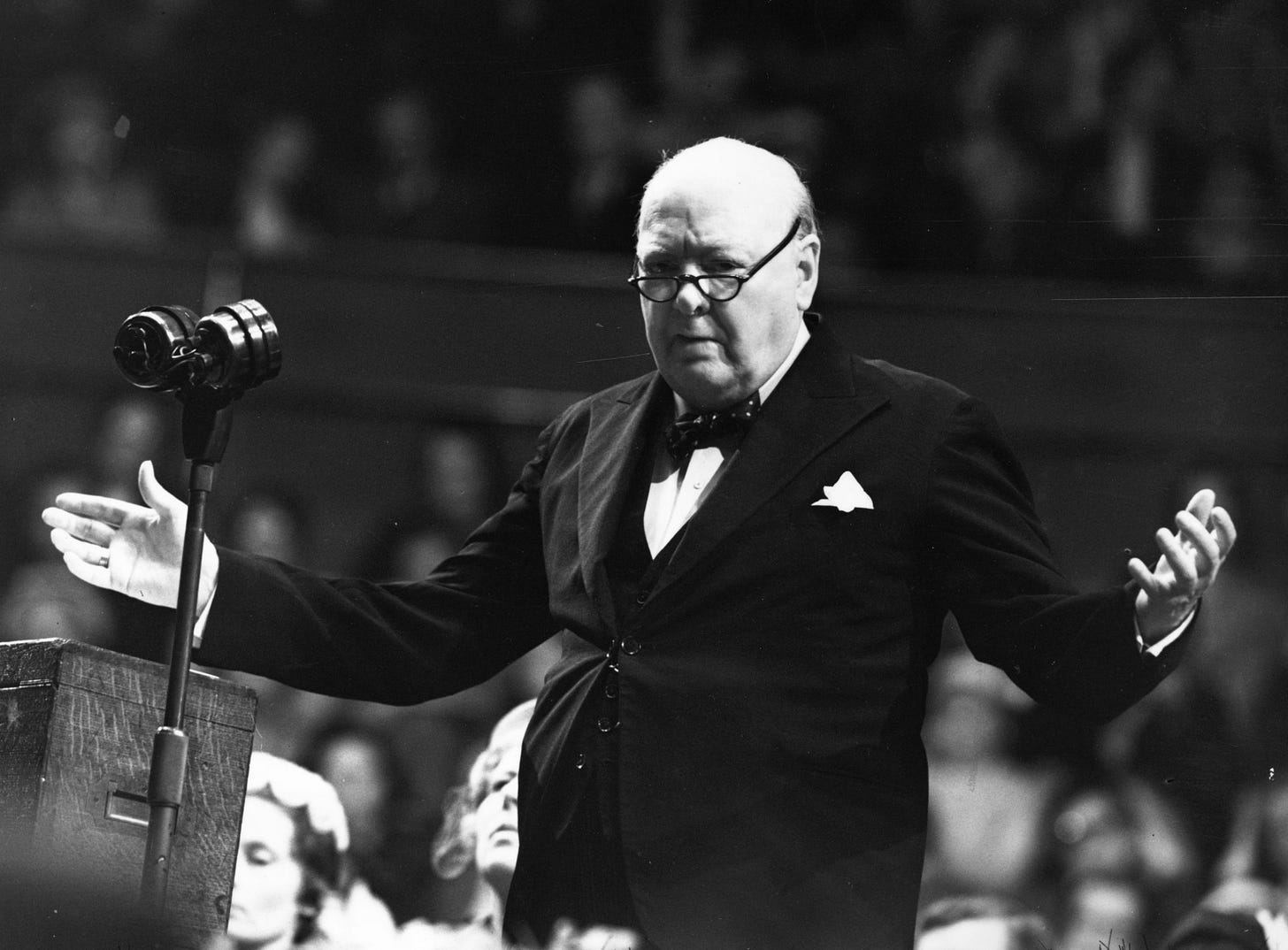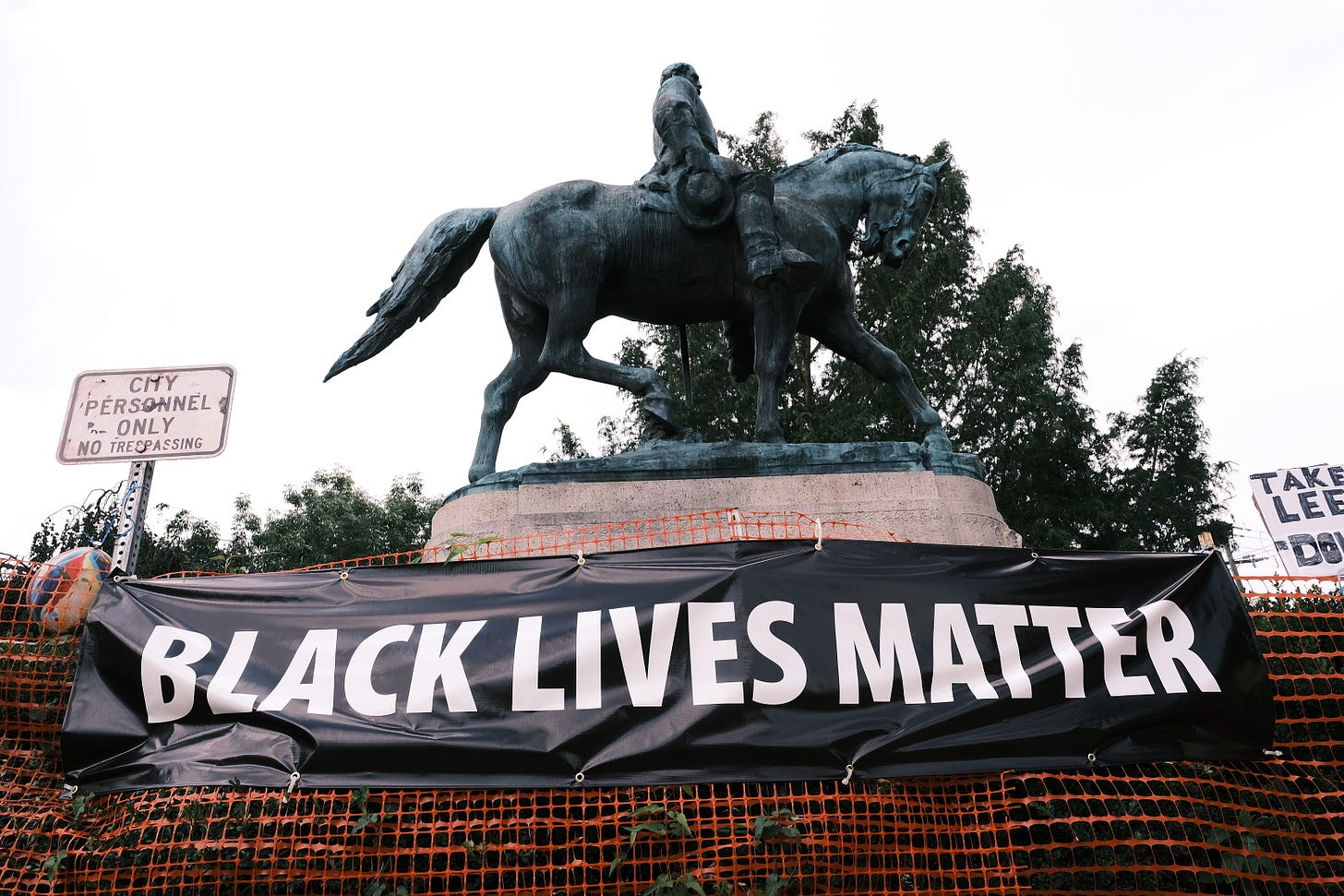Those Who Fail to Learn from History...

As a child, growing up in a state that had been a slave state and part of the Confederacy, I wasn’t fully aware of the disconnected in-betweenness that formed the basis of my history classes. What was our history, as Texans and Americans? And how did that identity form our sense of the past?
Shortly after my 10th birthday, the Japanese had attacked Pearl Harbor and for the next four years, my nation, the United States of America, was at war. Men were dying on land, sea, and air, fighting under the banner of the Stars and Stripes. The nation was swept up with a unity of purpose. We were Americans waging a war of justice against evil enemies. In my classrooms we took great pride in the Founding Fathers, but also in the history of Texas and our unique culture. We never reckoned with the horrors of slavery, let alone the Jim Crow laws and practices that defined our daily existence. We, of course, weren’t alone.
The Civil War and its true causes and unsettled aftermath continue to shape our country in profound ways.

As we contend with the peril and opportunity of our own moment, I find myself looking back to history for guidance and perspective. Each day of the calendar includes its own anniversaries that can be springboards for thought and connectivity with our current times. Last week, I was struck by how many on Twitter commented on the anniversary of the surrender of General Robert E. Lee at Appomattox, which signified the conclusion of the Civil War. The bloody and wrenching conflict and its imperfect resolution understandably struck a nerve considering the currents of our present reality. This week, I was reminded that the conclusion of the war was almost exactly four years, to the day, from when it started. April 12 marks the 160th anniversary of the shots that began the conflict, the firing on Fort Sumter.
I will not relate all the nuances of these historical moments, or the specifics of the war, and what followed. To do so rightfully fills volumes of history books and other wonderful acts of evocative scholarship (for example, Ken Burns’ lauded documentary series). For the purposes of our discussion here, I am moved by a sense of time and the overarching reverberations that shape our own age.
Let’s start with the very notion of history, itself a subjective construct of human understanding. There is an oft-quoted saying that “history is written by the victors.” It is commonly attributed to Winston Churchill, but the adage had been in circulation prior to his birth in 1874 —a sign of the fallibility of certainty in our historical remembrances. If the history of the Civil War was indeed written by those who won, you would not have known it in my segregated school classes in Houston. I was born 70 years after the start of the war. It is the equivalent of 1951 from today, history to be sure but not exactly ancient.
The history of the Civil War and the Reconstruction that followed, as well as segregation, and the racial violence, economic suppression, and civil rights injustices that continue to our present time have not been sufficiently confronted, not by a long shot. In my many travels to Germany over the years, I have been struck by how seriously that country takes the remembrance and atonement of its atrocities. That effort even has its own name, “vergangenheitsaufarbeitung,” which translates to a working off of the past. We do not see anything similar in this country, at least not at the scale enacted nor in the importance placed in the national consciousness. From boardrooms to classrooms, the sins of our past linger. And this is not just a problem with the Southern states.


There are obvious outrages that signify that we have not sufficiently exorcised the ghosts of our past. Some are symbolic, like the continued veneration of the Confederate flag. Others are systemic, like the enduring legacy of redlining in our housing market. The previous president was able to pluck at the still potent strings of misplaced white victimhood and racism that stretch back through Appomattox and Sumpter (as well as places like Selma, Birmingham, Tulsa and too many locations to count). “Make America Great Again” is itself a cynical and dangerous distortion of history as much as the “War of Northern Aggression.”
Another oft-quoted aphorism is those that fail to learn from history are doomed to repeat it. To be sure, we do not teach about the full horror of slavery or the causes of the Civil War, and we lack accountability for this nation’s many injustices around race. We have allowed a narrative to emerge that can be summoned and weaponized. It is the same currents that led to the storming of the Capitol on January 6.
In the battle for the soul of our country, we can start with embracing a more accurate telling of our own story.
There will always be disagreements over what that will mean. But we cannot shy away from the challenge. The Civil War was over slavery. Slavery was an unmitigated and violent evil. The end of the war did not bring a full freedom to formerly enslaved people. They and their descendants have continued to face the repercussions of state-sponsored discrimination.
What does give me hope, is that in the fissures of our current moment I see some long-overdue reckonings. I see it in the battle over voting. I see it in demands for better policing, for corporate responsibility, and for emerging voices from national political figures on how racism has shaped all sorts of policies, from transportation to environmental protection. To be sure, the legacy of suppression and privilege will not die easily. But as this country becomes more diverse, as more people question the tidy and contorted history they were taught, we can maybe fully celebrate the surrender at Appomattox as not an end, but a waypoint along a continuing and progressing journey of justice.




We can learn. We can improve. It just takes thought and work.
I, too, was born and raised in a former confederate state in the deep south. Born in the 40s, I grew up in the deep south in the ’50s, a time when the N-word (and worse) were tossed around as often as a football in the casual games we played after the school day ended.
The 50s were part of the era with separate schools, hell, even dedicated, colored restrooms all along route 66. The deeper you drove into the south, the less likely the sign on the door used the word “colored.”
Often there was not even a men’s restroom and a lady’s restroom; there was one room, one door and the sign on that door said “colored” or worse.
Down in Arkansas or Alabama somewhere around 1954, you might follow the sign to the “colored” restroom only to end up standing behind a bush looking at a disgusting hole in the ground.
So, let that thought roll around in your brain for a bit. How did those sights and sounds, the casual hatred permeating the air, shape me as a young man because it DID shape me; there’s no getting around that.
I getting old now and spend time and energy wondering h the hell we got here and why we face the same racial issues from one generation to the next? Are we the victim of genetics? Do we distrust, hate, kill those people who don’t look like us because of some genetically embedded fear of the Other?
Or is it a relic of the Antebellum South, slavery?
That might account for the black and white conflict. By the way, it is a conflict when police, white supremacists, and your next-door neighbor are running around with semi-automatic weapons killing blacks (well, whites and Asians too, but too many blacks) in the numbers we are today.
The antebellum theory might explain whites killing blacks, maybe, if you stretch and twist that narrative a bit. Why do I say that?
Simple, not every southern white man with a rifle is out hunting black folks. Most do not express outright hatred either. It is hard to hate something you rarely or never spend a moment of your precious time thinking about.
No, it takes purpose, violent emotion to take a life. That emotion could be hate, and there’s some of that, but I suspect fear is more likely.
I admit I don’t understand that fear. So I can’t tell you the source.
Is it the fear of losing your job to the brown guy wading across the Rio Grand, your daughter to the tall, black guy down at the real estate office, or your (white) way of life to the others?
I suspect it’s a bit of everything, but, mostly, the fear of those others who are, day by day, flooding into your country, making it less white, making you no longer the dominant player in your private little world. You begin to believe you might be made LESS, even replaced.
Perhaps it is simply the thought running around in your mind (like a rat in a cage) is you might lose something, anything to the other.
I have to admit I’ve rarely, if ever, attempted to put myself in another person’s skin, especially in the skin of those others.
It’s not that I don’t care about people of color. When I hear of the inequality imposed on them, their lives of desperation and fear, and, yes, their deaths, I am disturbed, even outraged, at their treatment.
But, and here’s the thing, I was born white. I wear my whiteness like an invisible shield, unaware of the armor that keeps me safe, that gets me jobs, housing, and keeps me alive when the police stop me for running a red light.
It’s always been there, like the beating of my heart. I think no more of it than I do of taking the next breath. Like Lady Gaga told us, I was “Born that Way.”
So, I’ve wandered through life all the while thinking my life is just the same as everyone else’s, that I am typical of all lives.
It takes purposeful thought to sustain awareness that all those other lives are not carbon copies of my white life. I believe that is true of all humans, regardless of the color of their skin.
I won’t pretend I was immune to the influence of the widespread prejudice and cruelty of the 50s.
A boy couldn’t grow to manhood in the deep south’s segmented society without being infected by all manner of misconceptions, half-truths, and complete lies. It wasn’t possible, not in the 1950s; it wasn’t.
I can hear my daddy as I write this, “they’re dumber than us, lazier than us, can’t be trusted.”
I wonder if I would have these same thoughts, these doubts about the role I play in racism swirling through my mind, or if I would wrestle with the right and wrong of it if I had (like some of my classmates) stayed in my hometown, built a life, grown old having never experienced the larger world.
Guess I’ll never know, The Vietnam conflict (War, it was a war!) heated up around the time I graduated, and the U.S. Army was looking for boys to make into men and the men into soldiers.
I keep coming back to it. I was, after all, born in the deep south, raised into adulthood there in the 50s, long before the civil rights movement, back when whites were king of the road and African-Americans were, well, you know what white people called them in the 50s.
My family gave me the same prejudices everyone else received in that place in those days. There is nothing different or unique about me.
I am average in most respects. Only one thing sets me apart, moderates the prejudices inherited from family, childhood companions, the place and time I lived during the early years of my life.
I joined the Army, went away to training, and got pushed into a military barracks filled with people of different colors and religious beliefs.
The Army housing, 40-man open bays, communal showers, and toilets, not a semblance of privacy anywhere, was a great equalizer.
In short, living with, learning about, befriending these ‘others’ chipped away at and diminished the embedded ignorance and prejudices from my early life.
Both made less but not entirely gone, never erased from my mind. I don’t believe it’s possible to erase prejudice, only to learn to recognize it and beat it back down when it raises its ugly head.
I do think exposure to other races and cultures lessens our ignorance. Living with different peoples weakened my prejudices, toned them down, made them a bit smaller.
Duty in Vietnam, that violent place where life or death depended on knowing and trusting your fellow soldiers, your brothers-in-arms, whatever the color of his skin, reduced my prejudice and ignorance still more.
The years I spent in Japan, Taiwan, the Philippines, and Germany also worked to reduce the prejudice gained in my childhood.
It is harder to hate a person once you begin to know them and participate in their culture.
Years ago, sitting around the small dining table tucked into one corner of the kitchen in a sharecroppers shack with my grandmother Edith, she told me she believed nothing much had changed in her life. She thought the more civilized and tolerant world that appeared to arrive in the late 60s with the Civil Rights Act and Voting Rights Act was nothing more than a thin coat of whitewash covering a rotten old slat-board fence.
Then she told me how I might be a good man, begin to make a difference.
She said, “Ain’t nobody can understand it all—the world changes. Lord, I know it does. One day at a time, one person at a time, one kindness or one cold-hearted deed at a time.
Treat folks like folks, whatever they color. Be kind to the children, teach them to do the same to others. The bible says, ‘Honor your father and mother.’ I say. Amen to that!
Don’t tell the lie. Don’t cheat. Don’t steal, not another man’s money or food or woman. That is how you be the good man.”
Yet, that ugly old fence still exists, still gets a fresh coat of whitewash time and again. I don’t know how to fix the problem or if it can be fixed.
It is past time to tear that fence down, face the past, admit who we were, and move forward to who we can be.
I believe I was lucky in life - lucky to join the Army, fortunate to fight in Vietnam, even luckier to have had the opportunity to live in different countries, amongst other cultures of the world.
The experience helped me see how to be a better man, maybe not a good one, definitely not a perfect one, but a man on the right path.
The honest to God truth is this; I have never yet lived up to my standards about being a good man.
I am getting better, paying attention, supporting people of color, voting for those that support them as well.
I support them with money when I can, my voice when I can, my vote always.
I listen to their trial and tribulations and spread the word to others, trying to change minds and hearts where and when I can.
You should know I have a soft spot for the most impoverished whites as well. Colorblind means precisely that.
Great article. I have to add that the Civil War was not America’s first dealings with racism. I believe America was built on racism. We have forgotten what we did to the Native Americans when we came over to colonize this new land. The conflicts the White Man had with the Native Americans was just as bloody as the Civil War. We also continue to this day with the injustices of racism with Native Americans.